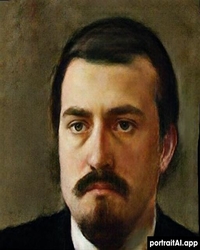0



















| Thumbs Up/Down |
| Received: 1,885/62 Given: 1,554/22 |


Yes.
Last edited by Vyacheslav; 06-10-2019 at 09:07 PM.















| Thumbs Up/Down |
| Received: 1,885/62 Given: 1,554/22 |


[QUOTE=Adamm;6081968]I got my Ceasar results thanks to Vyacheslav, here are the results:
Yes.
Last edited by Vyacheslav; 06-10-2019 at 09:07 PM.














| Thumbs Up/Down |
| Received: 8,895/29 Given: 5,289/29 |


46. Carthaginian Ibiza (270 BC) (22.14)
Modern Group
1. Spanish_Andalucia (16.10)
2. Spanish_Aragon (17.13)
3. Spanish_Castilla_La_Mancha (17.62)
4. Spanish_Valencia (17.72)
5. Spanish_Cantabria (19.47)
6. Southwest_French (19.75)
7. Spanish_Murcia (19.85)
8. Spanish_Extremadura (20.14)
Similar Samples
Roman Iberia Granada (300 AD) (13.84)
Neolithic Ireland (3200 BC) (14.23)
Neolithic Orkney Islands (3220 BC) (14.75)
Early Medieval Iberia Granada (760 AD) (15.24)
Neolithic Orkney Islands (3250 BC) (15.74)
Ancient DNA study finds Phoenician from Carthage had European ancestry
A research team co-led by a scientist at New Zealand's University of Otago has sequenced the first complete mitochondrial genome of a 2500-year-old Phoenician dubbed the "Young Man of Byrsa" or "Ariche".
This is the first ancient DNA to be obtained from Phoenician remains and the team's analysis shows that the man belonged to a rare European haplogroup—a genetic group with a common ancestor—that likely links his maternal ancestry to locations somewhere on the North Mediterranean coast, most probably on the Iberian Peninsula.
The findings are newly published in the prestigious international journal PLOS ONE.
Study co-leader Professor Lisa Matisoo-Smith of the Department of Anatomy says the findings provide the earliest evidence of the European mitochondrial haplogroup U5b2cl in North Africa and date its arrival to at least the late sixth century BC.
"U5b2cl is considered to be one of the most ancient haplogroups in Europe and is associated with hunter-gatherer populations there. It is remarkably rare in modern populations today, found in Europe at levels of less than one per cent. Interestingly, our analysis showed that Ariche's mitochondrial genetic make-up most closely matches that of the sequence of a particular modern day individual from Portugal," Professor Matisoo-Smith says.
"U5b2cl is considered to be one of the most ancient haplogroups in Europe and is associated with hunter-gatherer populations there. It is remarkably rare in modern populations today, found in Europe at levels of less than one per cent. Interestingly, our analysis showed that Ariche's mitochondrial genetic make-up most closely matches that of the sequence of a particular modern day individual from Portugal," Professor Matisoo-Smith says.
While the Phoenicians are thought to have originated from the area that is now Lebanon, their influence expanded across the Mediterranean and west to the Iberian Peninsula where they established settlements and trading posts. The city of Carthage in Tunisia, North Africa, was established as a Phoenician port by colonists from Lebanon and became the centre for later Phoenician (Punic) trade.
The researchers analysed the mitochondrial DNA of 47 modern Lebanese people and found none were of the U5b2cl lineage.
Previous research has found that U5b2cl was present in two ancient hunter-gatherers recovered from an archaeological site in north-western Spain, she says.
"While a wave of farming peoples from the Near East replaced these hunter-gatherers, some of their lineages may have persisted longer in the far south of the Iberian peninsula and on off-shore islands and were then transported to the melting pot of Carthage in North Africa via Phoenician and Punic trade networks."
Professor Matisoo-Smith says Phoenician culture and trade had a significant impact on Western civilisation. For example, they introduced the first alphabetic writing system.
"However, we still know little about the Phoenicians themselves, except for the likely biased accounts by their Roman and Greek rivals—hopefully our findings and other continuing research will cast further light on the origins and impact of Phoenician peoples and their culture," she says.
https://phys.org/news/2016-05-ancien...-european.html
https://www.yfull.com/tree/E-BY7449/
E-V22 - E-BY7449 - E-BY7566 - E-FT155550
According to oral family tradition E-FT155550 comes from a deserter of Napoleon's troops (1808-1813) who stayed in Spain and changed his surname.















| Thumbs Up/Down |
| Received: 18,834/95 Given: 14,707/51 |















| Thumbs Up/Down |
| Received: 18,834/95 Given: 14,707/51 |


What mean red dots, and what mean blue and purple ones?
🔴
🔵
⚪
















| Thumbs Up/Down |
| Received: 7,418/225 Given: 5,565/96 |















| Thumbs Up/Down |
| Received: 18,834/95 Given: 14,707/51 |


Yes.
First one is this guy:
https://www.theapricity.com/forum/sh...=1#post6040180

Last edited by Dušan; 06-10-2019 at 10:05 PM.
🔴
🔵
⚪













| Thumbs Up/Down |
| Received: 3,797/4,816 Given: 7,486/155 |













| Thumbs Up/Down |
| Received: 3,797/4,816 Given: 7,486/155 |
There are currently 1 users browsing this thread. (0 members and 1 guests)
Bookmarks